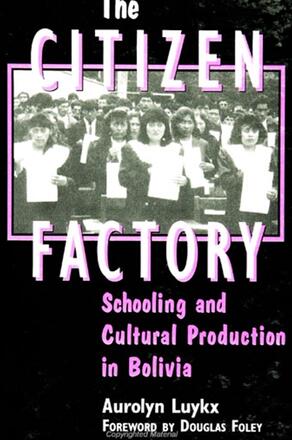
The Citizen Factory
Schooling and Cultural Production in Bolivia
Alternative formats available from:
A vivid ethnography of a group of students training to become schoolteachers in Bolivia and the challenges they face as they try to maintain their indigenous identity.
Description
This vivid ethnography of Bolivian students explores the challenges they confront as they try to maintain their indigenous identity. In examining how the concrete practices of schooling shape student identities, this book looks at how the discourses and texts produced by students themselves are appropriated toward this end, and how students mobilize their own cultural resources to contest this process, critiquing and subtly transforming the agenda of state-run education. These issues are addressed as they are played out in the lives of young Native South Americans (Aymaras) studying to become rural schoolteachers in Bolivia, the poorest and most "indigenous" of all Latin American countries. It is a vivid ethnographic account of how these students confront the assaults which their professional training wages against their indigenous identity, as they alternately absorb and contest the ethnic, class, and gender images meant to transform them from "Aymara Indians" into "Bolivian citizens."
Aurolyn Luykx teaches in the Linguistic and in the Pedagogy departments at the Universidad Mayor de San Simon (UMSS), Cochabamba, Bolivia.
Reviews
"The Citizen Factory is a testimony to the organic character of all ethnographic interpretation...This study of a Bolivian Normal School will challenge comparative politics and comparative education scholars to rethink their studies of political socialization. Moreover, fellow anthropologists will be drawn to [the author's] theoretical model for studying ideological hegemony and identity construction. In short, Luykx has produced an 'educational ethnography' that extends the genre itself." — Douglas Foley, from the Foreword
"The ethnographic descriptions are rich, and well embedded in history and in the broader social context. The author has done a very thorough study. The book shows the links between the larger social structure and day-to-day life. In fact, it shows the work people do to create (and sometimes contest) the larger social structure—in this case, gender, ethnic, and class identities." — Kathryn M. Anderson-Levitt, University of Michigan, Dearborn